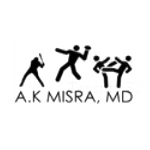I remember being on call in the emergency department numerous times in my career, attending to the care of chest pain patients.
On many occasions we would “save the day” for patients who were having chest pains ranging from angina to a heart attack, which happens when the heart is not getting enough blood.
These (acute coronary syndrome) cases can be fast moving and extremely time sensitive. In fact, there was a sign in the emergency department that said “Time is Muscle” – referring to the linear relationship between the time cardiac muscle tissue does not get oxygen and its resultant death as a result of a heart attack.
While very often patients were having a heart attack or angina pain of some type, there were also times the work up to that end was completely unrevealing.
As a young Internist in training, while I felt relieved these specific patients were not in a life-threatening situation, I would wonder what else could account for heart-attack-like symptoms, yet not be a heart attack.
While the list can be lengthy, one of the more common issues that accounted for these symptoms was the digestive system. Sometimes something as simple as a local anesthetic and a combination of antacids given orally would halt the chest pain symptoms.
So what happened? Often times these patients had extremely bad acid reflux and sometimes other digestive problems such as painful esophageal muscle spasms.
Acid reflux (a.k.a. heartburn) can have a very slow and largely minimally symptomatic course for many years as well. However, the heartburn can also be fast moving and mimic a heart attack.
So what should a person do? Always seek the immediate care of a doctor if there is any hint of chest pain because dangerous things such as a heart attack or aortic rupture need to be ruled out first.
Severe acid reflux has been blamed as the cause of chest pain in the past (unfortunately and sadly resulting in high mortality), when in fact that was not the case, but rather acute coronary syndrome was in fact occurring.
Once the more dangerous things have been ruled out, one can focus on issues like acid reflux – a condition which affects millions across our nation and has long term, serious potential implications. Left unchecked, it can result in esophageal cancer. So if a person has chronic acid reflux, they must get it carefully attended to by a physician.
One of the medications that has been effective in helping control acid reflux are the category of proton pump inhibitors, which are of the strongest type of medicines available. But there are some caveats to them; they must be taken on an empty stomach and then followed by eating.
Without these two pre-conditions, they either don’t work at all or aren’t very effective. I often recommend to patients they take this medication first thing upon awakening and then follow with breakfast about 30-45 minutes later.
But patients must keep in mind that prolonged use of proton pump inhibitors has some other complications, so keep your physician informed if you have started them on your own so they are used for the appropriate period of time.
There are other medications that can help with the symptoms of acid reflux, all of which are available over the counter. Each has its own particular mechanisms of action and directions on use, yet they (like proton pump inhibitors) can result in people developing “rebound hyperacidity.” Consult with a physician when starting not just these medications, but any new medication.
Preventative Measures
One aspect of internal medicine that is not given enough attention, both at the educational level as well as in practice, is proper preventative measures and interventions. That leaves much of what we do as internists reactive in nature and after the fact.
Patients should be mindful of the following
- Mental Health: High levels of stress are often associated with hyperacidity, a condition of excessive acidity
- Weight: Obesity can often contribute significantly to the worsening of hyperacidity
- Diet: Certain foods can trigger hyperacidity
- Lifestyle: Smoking and drinking are directly correlated to hyperacidity
In summary, always be mindful of acute symptoms and seek immediate care from a physician for any fast moving process that’s taking place. It will go a long way toward prevention of this completely manageable and preventable problem.
Dr. A.K. Misra, MD, is the Medical Director for U.S. HealthWorks in South San Francisco. He specializes in an Internal Medicine and Sports Medicine.






